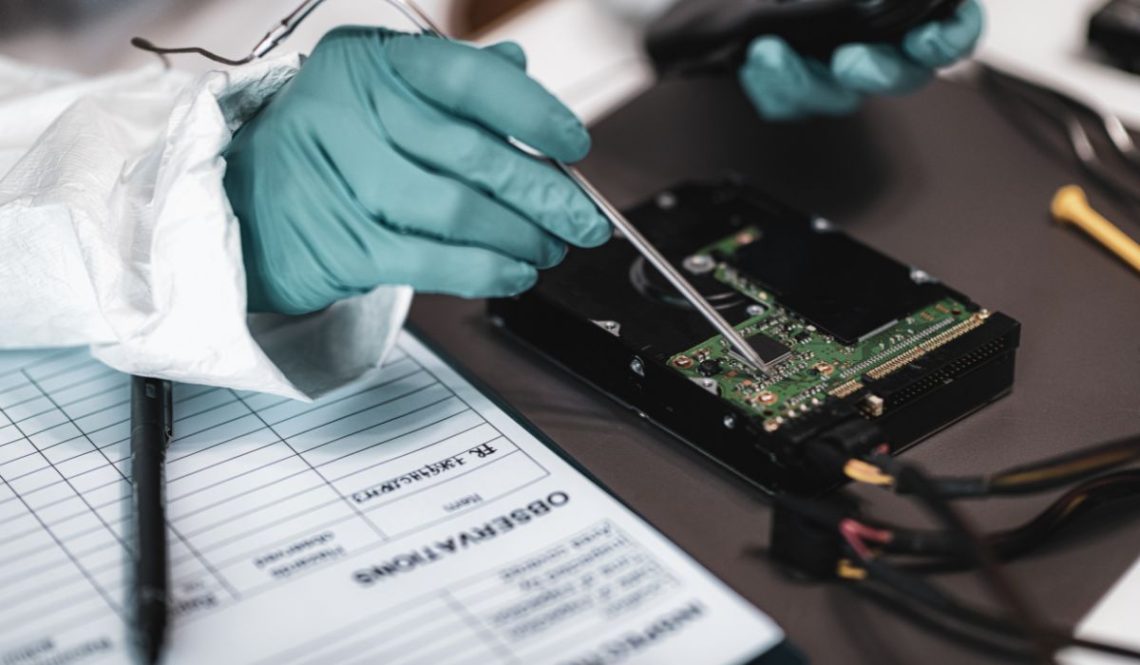
How To Become A Forensic Psychologist | SkillsAndTech
Forensic psychologists are experts in human behavior and mental processes. They use their knowledge to help solve crimes and understand the psychological motives behind criminal behavior.
If you’re interested in becoming a forensic psychologist, there are a few things you need to know. First, you’ll need to earn a bachelor’s degree in psychology. Then, you’ll need to complete a doctoral degree in forensic psychology. Finally, you’ll need to obtain a license to practice in your state.
See Also: How To Become An Amazon Seller | SkillsAndTech
Table of Contents
What is a forensic psychologist?
Forensic psychology is the application of psychological principles and methods to criminal and civil cases. It is one of the newest subfields within psychology, and one that is currently experiencing a great deal of growth. Forensic psychologists work in a variety of settings, including law enforcement, courts, and corrections. They may consult on criminal cases, provide expert testimony, or work directly with offenders.
Forensic psychologists must have a strong understanding of both psychology and the law. They must be able to apply psychological principles to real-world legal issues, and to do so in a way that is both ethical and legal. In order to become a forensic psychologist, one must first earn a bachelor’s degree in psychology. After completing a bachelor’s degree, one must then complete a doctoral degree in psychology. Once a doctoral degree is earned, a forensic psychologist must complete a one-year internship, and must then pass a state-licensed exam.
What do forensic psychologists do?
Forensic psychologists are qualified psychologists who use their psychological expertise to assist in the legal system. They may work with victims, offenders, or both. Forensic psychologists may be involved in civil or criminal cases. In civil cases, they may help people recover damages for psychological injuries. In criminal cases, they may evaluate an offender’s mental state at the time of the offense and offer testimony in court.
Forensic psychologists may also work with lawyers and judges to develop a better understanding of psychological issues related to the legal system. For example, they may help develop jury selection procedures or create sentencing recommendations.
Forensic psychologists typically have a doctoral degree in psychology, although some may have a master’s degree. They must also be licensed to practice psychology in their state.
How do I become a forensic psychologist?
Forensic psychologists are licensed psychologists who have specialized in the application of psychological knowledge to the legal system. They work with both criminal and civil cases, and their work can involve anything from conducting psychological evaluations to testifying in court.
If you’re interested in becoming a forensic psychologist, you’ll need to start by completing a bachelor’s degree in psychology. Once you’ve completed your undergraduate studies, you’ll need to pursue a doctoral degree in clinical or counseling psychology. After you’ve earned your doctorate, you will need to complete a one-year internship and pass a state-mandated exam in order to become licensed.
Once you’ve met all of the requirements for becoming a forensic psychologist, you can begin working in the field. You can work in a variety of settings, including private practice, government agencies, and law firms. You can also choose to specialize in a particular area of forensic psychology, such as child custody evaluations or criminal profiling.
No matter what setting you choose to work in, you’ll need to be able to effectively communicate with lawyers, judges, and other professionals in the legal system. You’ll also need to be able to work well under pressure and maintain a high level of objectivity in your work.
What qualifications do I need to become a forensic psychologist?
There are many different paths that one can take to become a forensic psychologist. The most common route is to first earn a bachelor’s degree in psychology, followed by a master’s degree and/or doctorate in forensic psychology. However, there are also many forensic psychology programs that offer a bachelor’s degree as well.
Some of the most important qualities that a successful forensic psychologist must possess include excellent communication skills, both written and verbal; strong analytical and critical thinking skills; and the ability to work well under pressure. In addition, a forensic psychologist must be able to maintain a high level of objectivity and be able to separate their personal feelings from their work.
While there are no specific licensing requirements for forensic psychologists in the United States, many states do require that they be licensed as psychologists. In order to be licensed as a psychologist, one must typically earn a doctorate in psychology, complete an internship, and pass a state-administered exam.
What is the work environment like for a forensic psychologist?
The work environment for a forensic psychologist can be both challenging and rewarding. They may work in a variety of settings, including prisons, mental health facilities, and courtrooms. Forensic psychologists must be able to handle high-stress situations and have excellent communication and interpersonal skills.
Forensic psychologists often work long hours, and the work can be emotionally demanding. They may need to deal with violent or disturbed patients, and witness traumatizing events. However, they also have the satisfaction of knowing that their work can help to protect the public and bring justice to victims of crime.
What are the career prospects for a forensic psychologist?
A forensic psychologist is a professional who uses psychological principles to help solve crimes. These professionals work with law enforcement agencies, the legal system, and mental health professionals to provide psychological insight into criminal cases.
Forensic psychologists use their knowledge of human behavior to help investigate crimes and understand the motivations behind them. They may also work with victims and witnesses to help them cope with the aftermath of a crime. In addition, forensic psychologists may provide expert testimony in court cases.
The career prospects for forensic psychologists are excellent. The demand for these professionals is expected to grow in the coming years. With the right education and training, you can become a forensic psychologist and help make a difference in the criminal justice system.
Conclusion
Forensic psychologists apply psychology to the field of criminal justice. They work with law enforcement agencies, prosecutors and defense attorneys to help investigate crimes and to understand the psychological factors involved in criminal behavior. They may also provide expert testimony in court.
If you are interested in becoming a forensic psychologist, you will need to complete a doctoral degree in psychology with a specialization in forensics. Some programs offer a concentration in forensics, while others offer a specialty track. You will also need to complete an internship and pass a state-licensed exam.
There are many different career paths you can take as a forensic psychologist. You can work in a private practice, a government agency or a law firm. You can also work as a consultant to businesses or organizations.
If you want to become a forensic psychologist, you will need to have a strong interest in psychology and criminal justice. You should be able to think critically and have excellent problem-solving skills. You will also need to be able to communicate effectively with others.





